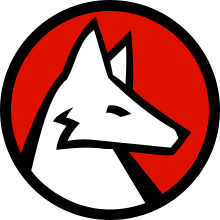Wolfram Language
 |
|
| Paradigm | multi-paradigm: term-rewriting, functional, procedural, array |
|---|---|
| Designed by | Stephen Wolfram |
| Developer | Wolfram Research |
| First appeared | 1988 |
| Typing discipline | dynamic, strong |
| OS | Cross-platform |
| License | Proprietary (available at no-cost for some platforms) |
| Filename extensions | .nb, .m, .wl |
| Website | www.wolfram.com/language & WolframLanguage.org |
| Major implementations | |
| Mathematica, Wolfram Development Platform, Mathics, MockMMA | |
| Influenced by | |
| Influenced | |
| Julia | |
The Wolfram Language, a general multi-paradigm programming language developed by Wolfram Research, is the programming language of Mathematica and the Wolfram Programming Cloud. It emphasizes symbolic computation, functional programming, and rule-based programming and can employ arbitrary structures and data.
It includes built-in functions for generating and running Turing machines, creating graphics and audio, analyzing 3D models, matrix manipulations, and solving differential equations. It is extensively documented.
It is bundled with the system software installed on every Raspberry Pi.Intel Edison, introduced at CES 2014, also integrates the language. The language will also be integrated in the Unity game engine.
The language was officially named in June 2013 although, as the programming language of Mathematica, it has been in use in various forms for over 30 years. Before this it was internally referred to by several names, such as "M" and "Wolfram Language." Other possible names considered to become the official name include "Lingua" and "Express."
Both Stephen Wolfram and Christopher Wolfram were involved in helping create the alien language for the film Arrival, for which they used the Wolfram Language.
...
Wikipedia
